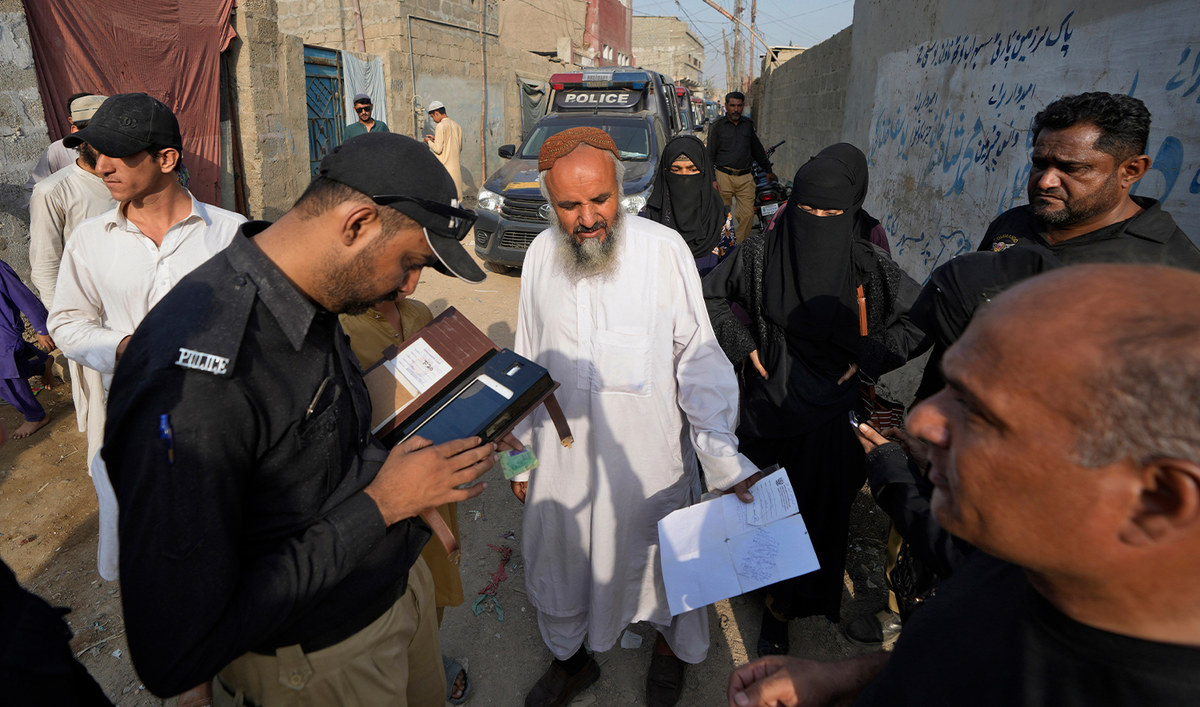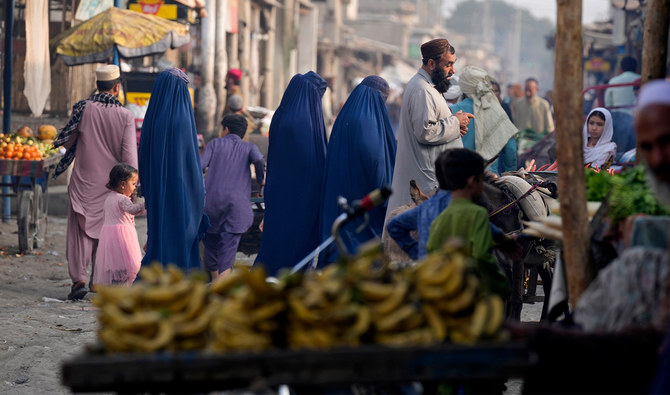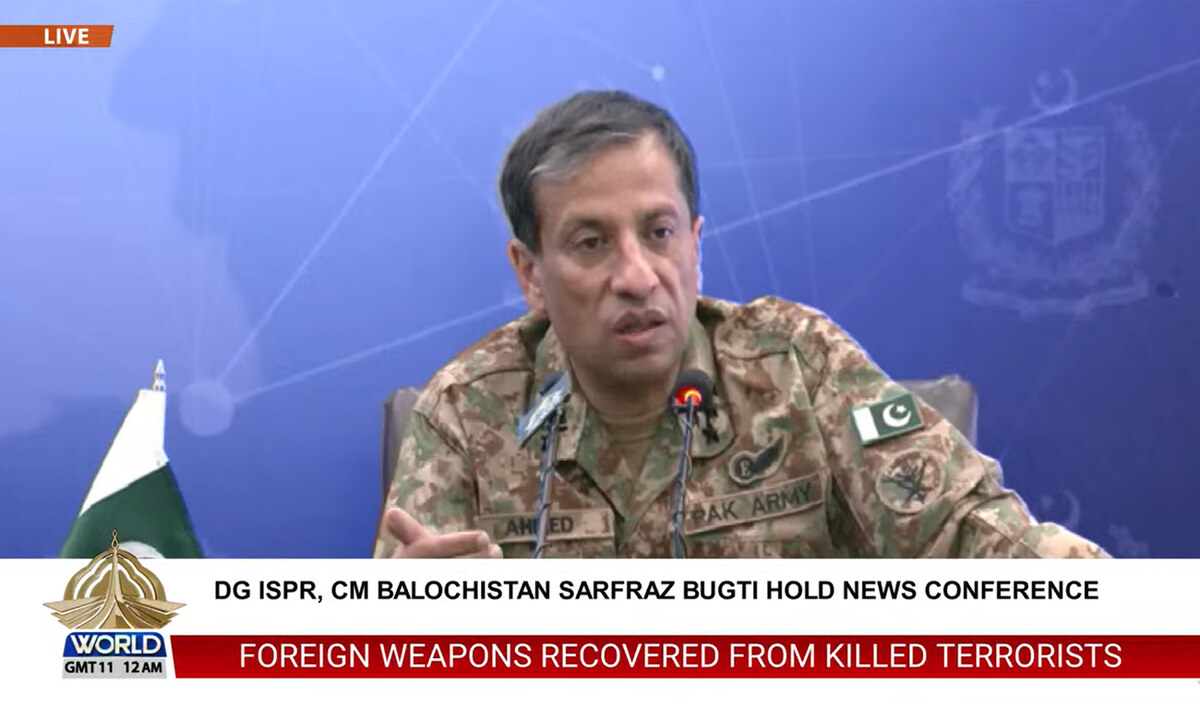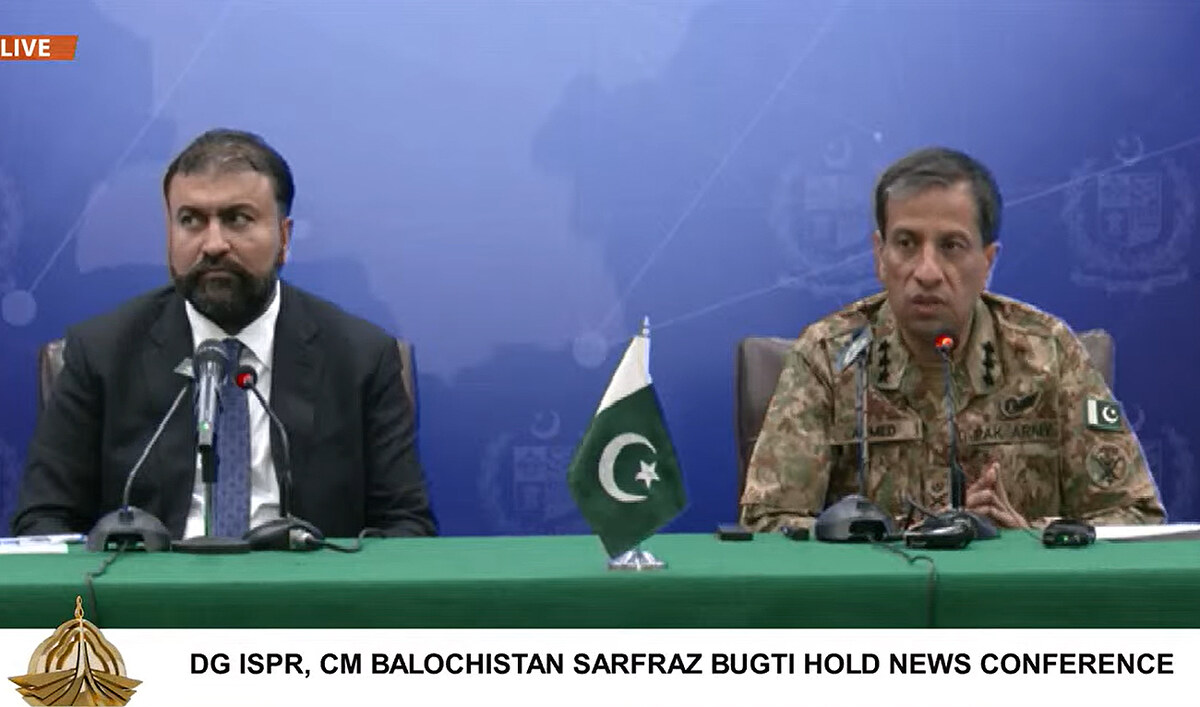KARACHI, Pakistan: Born and raised in Pakistan to parents who fled neighboring Afghanistan half a century ago, an 18-year-old found himself at the mercy of police in Karachi who took his cash, phone and motorbike, and sent him to a deportation center.
Scared and bewildered, he spent three days there before he was sent back to Afghanistan, a place he has never been to, with nothing but clothes on his back.
The youth is one of at least 1.7 million Afghans who made Pakistan their home as their country sank deeper into decades of war. But they’ve been living there without legal permission, and are now the target of a harsh crackdown on migrants who Pakistan says must leave.
Some 600,000 Afghans have returned home since last October, when the crackdown began, meaning at least a million remain in Pakistan in hiding. They’ve retreated from public view, abandoning their jobs and rarely leaving their neighborhoods out of fear they could be next for deportation.
It’s harder for them to earn money, rent accommodation, buy food or get medical help because they run the risk of getting caught by police or being reported to authorities by Pakistanis.
The youth, who had been working as a mechanic in an auto shop since he was 15, spoke on condition of anonymity for fear of arrest and deportation.
He has applied for the same documentation that his family has, but he won’t get it. Pakistan isn’t issuing paperwork for Afghan refugees or their children.
“My life is here. I have no friends or family in Afghanistan, nothing,” the young man told The Associated Press. “I wanted to come back (to Pakistan) sooner, but things had to calm down first,” he said, referring to the anti-migrant raids sweeping the country at the time.

A police officer checks the document of a resident during a search operation against illegal immigrants at a neighborhood of Karachi, Pakistan, on November 3, 2023. (AP)
Taliban authorities gave him 2,500 afghanis ($34) once he entered Afghanistan to start a new life. They dispatched him to northeastern Takhar province, where he slept in mosques and religious schools because he knew nobody to stay with. He passed his time playing cricket and football, and borrowed other people’s phones to call his family.
Six weeks later, he traveled from Takhar to the Afghan capital, Kabul, then to eastern Nangarhar province. He walked for hours in the dark before meeting up with human smugglers hired by his brother in Pakistan. Their job was to get him to Peshawar, the capital of Pakistan’s northwest Khyber Pakhtunkhwa province, for the price of $70.
He is relieved to be reunited with his family. But he is vulnerable.
Police have daubed numbers on homes in his neighborhood to show how many people live there and how many have documentation. Hundreds of Afghan families have fled the area since the operation began. There are fewer people to hide among.
Such neighborhoods in Karachi are easily home to tens of thousands of Afghans. But they have no drainage systems, health care or education facilities. There are few women on the streets, and those who venture out wear burqas, often the blue ones more commonly seen in Afghanistan.
Lawyer Moniza Kakar, who works extensively with the Afghan community in Karachi, said there are generations of families with no paperwork. Without it, they can’t access basic services like schools or hospitals.
Afghans were already under the radar before the crackdown, and rumors abound that Pakistan wants to expel all Afghans, even those with documentation. Pakistan says no such decision has been made.
In another Karachi neighborhood with a mostly Afghan population, people scatter when police arrive, disappearing into a maze of alleys. A network of informants spread news of the visits.
Kakar despairs at the plight of Afghans who remain in Pakistan. “Sometimes they don’t have food so we appeal to the UN to help them out,” she said. To earn money or get medical help, they would have previously traveled from such neighborhoods into the heart of Karachi, but they can’t afford these journeys anymore. They’re also likely to be arrested, she added.
Some show Kakar their ID cards from the time of Gen. Zia Ul-Haq, the military dictator whose rule of Pakistan coincided with the 1979 Soviet invasion of Afghanistan. “They wonder why they don’t have citizenship after 40 years. They don’t share their location. They don’t go out. They live in property rented in someone else’s name.”
There are children who were born in Pakistan who have grown up and have children of their own. “The children don’t have any identity paperwork. All of them have an undecided future,” said Kakar.
Syed Habib Ur Rehman works as a media coordinator at the Afghanistan Consulate General in Karachi. He spends a lot of time in these communities.
“There are empty homes, empty shops,” Rehman said. “Markets are empty. The Pakistanis we know don’t agree with what is happening. They say they have spent a good life with us. Their business has gone down because so many Afghan families have left.”
The Afghans interviewed by the AP had different reasons for never securing their status. Some said they were overseas working. Others didn’t have time. Nobody thought Pakistan would ever throw them out.
Mohammad Khan Mughal, 32, was born in Karachi and has three children. Before the crackdown started, the Afghan ran a tandoor business. Police told him to close down.
“My customers started complaining because they couldn’t buy bread from me,” he said. He and his family went to the southwestern city of Quetta in Baluchistan province to escape the raids.
He returned to Karachi a few days later, and has no intention of leaving.
“This is my home,” he said, with pride and sadness. “This is my city.”





















